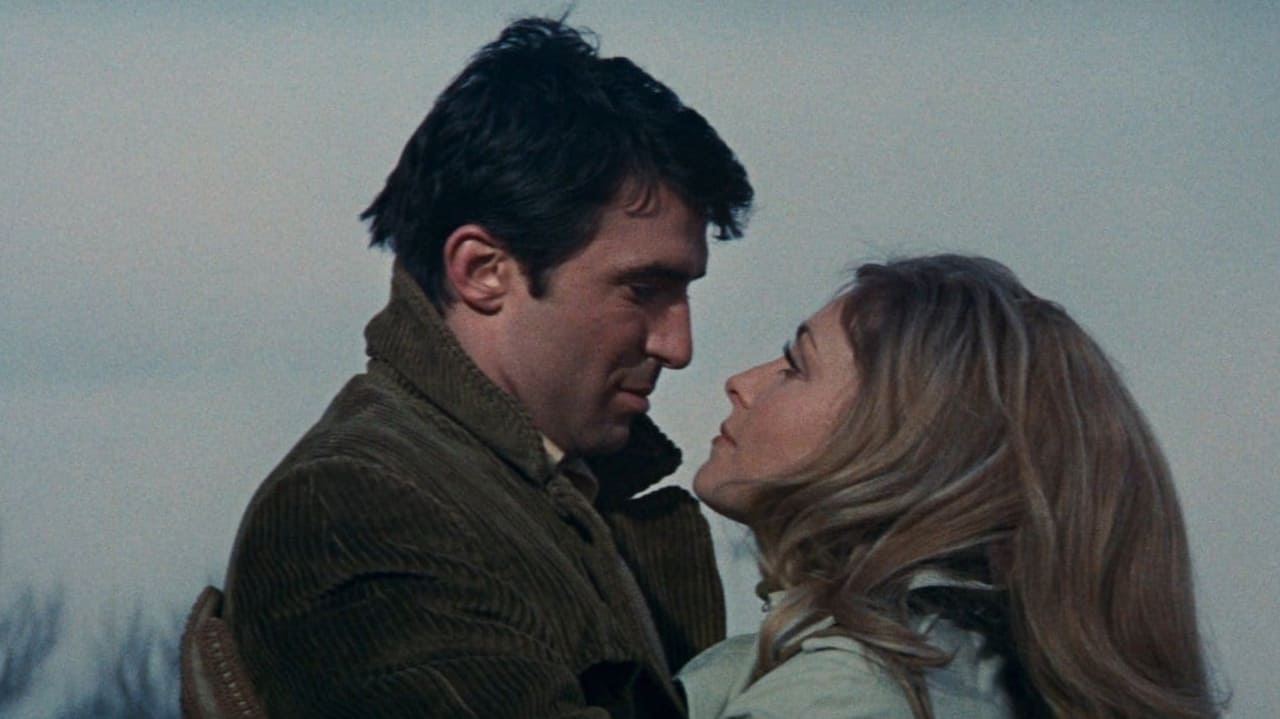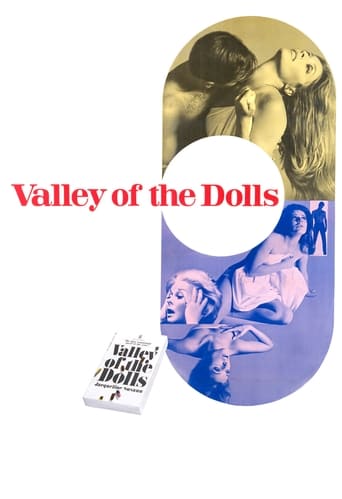

Having just finished the book, I was excited to 'meet' the characters and see how they compared to how I imagined them.No comparison.The pulp versions were better.Numerous unnecessary cuts were made to the storyline and unnecessary scenes were drawn out. Some of the cuts (e.g., Anne's relationship with Allen) severely weakened the storyline.I liked most of the actors but felt in general they underperformed or their heart wasn't in it. The director did not draw their best performances out of them.If you read the book, you probably want to watch this just to compare, but prepare to be disappointed.About my reviews: I do not offer a synopsis of the film -- you can get that anywhere and that does not constitute a meaningful review -- but rather my thoughts and feelings on the film that hopefully will be informative to you in deciding whether to invest 90-180 minutes of your life on it.My scale: 1-5 decreasing degrees of "terrible", with 5 being "mediocre" 6- OK. Generally held my interest OR had reasonable cast and/or cinematography, might watch it again 7 - Good. My default rating for a movie I liked enough to watch again, but didn't rise to the upper echelons 8- Very Good. Would watch again and recommend to others 9- Outstanding. Would watch over and over; top 10% of my ratings 10 - A Classic. (Less than 2% receive this rating)
... View MoreOne of the funniest "bad movies" ever made, "Valley of the Dolls" is one of three Jacqueline Susann novels made into films, and without a doubt, the best. In fact, the other two ("The Love Machine" and "Once is Not Enough") pale in comparison to this, both in the history of their filming, and in the outrageousness of the plot line. It's a tale as old as time, a story of three struggling young women in New York City who will all find struggles as they are objectified, envied, turned into drunks and druggies, and like "Three on a Match", one will not survive, one will struggle to survive, and the third will find happiness through the old fashioned notions of what a woman should be. These three ladies are Patty Duke, Barbara Parkins and Sharon Tate, all talented in their own way, and while Parkins might be the brains of the trio and Tate the buxom stereotypical dumb sexpot, it's Duke who gets the majority of the attention. Coming off of winning an Oscar, a hit TV show, a fairly successful movie ("Billie"), Duke was the one who got the big build-up, although photographers took notice of Tate's beauty and "Peyton Place" fans flocked to see Parkins on the big screen. "Valley of the Dolls" is as scandalous as that New England small town, and set in the world of high fashion, advertising and the entertainment world, the Big Apple is not at all like that sleepy little town where every seemingly noble citizen had a scandal. Sure, the scandals here are present, but it's expected in a noisy city like New York where you can blend into the crowds to escape from notoriety. The women all end up in bad relationships, and one will find herself greatly abused by men, while one takes the desperate way out and the third realizes the only way she can escape a similar ending is to escape from it altogether.Then there's Susan Hayward's Helen Lawson, a Broadway star of the Ethel Merman dynamic who is resentful of the upstart Neeley O'Hara and has her one musical number cut from the show they are in together. This is based on an alleged (and disproven theory) of a story that happened between Merman and supporting player Betty Hutton years before (and could have conceivably have happened with any other major star as well), and in the case of Duke's Neeley, she turns to alcohol and drugs to escape from the pressures of a rising young musical actress on Broadway. Hayward is as bitchy as a Broadway diva can be, obviously scarred of losing her grasp as the leading star of the musical theater, and treats Duke with disdain from the moment they meet. But after making somewhat of a name for herself, Duke pulls out one last stop to get revenge on Hayward, and it is not without cost to either of them.This is filled with great bad dialog, a few songs (including a beautiful Burt Bacharach theme song sung by Dionne Warwick) and some moments of pure camp that audiences still treasure. Who can forget Duke's beads wrapping themselves into a pretzel while singing "It's Impossible", and the bad set of Hayward's "I'll Plant My Own Tree" in her one musical number where she proclaims a love of humanity but inspires nothing but hatred from co-stars and those in the theater community who know what a demanding diva she can be. I would have found it disconcerting to have seen Judy Garland in this part, as while she could have certainly been commanding, and had played a few tough broads before, none of her characters were ever as mean. It's been rumored that Susann wrote Neeley about her, which would have been strange if Garland had to take down Duke while playing a variation of her old pal Ethel Merman. As for Parkins and Tate, they have a more difficult task in playing characters not as colorful as Duke's extremely troubled Neeley. Parkins is smart, sensitive and unlucky in love, pretty without being a sexpot or brassy. She's by far the most likable of the three, and manages to make her character become human, not saintly, and sort of the protectress of the three. Tate finds out the hard way that being buxom and sexy isn't always a plus in getting ahead, because nobody takes her serious as a talent, thinks she's stupid, and eventually this only leads her to make a living with one item required: a body. Of the three, she is the saddest. Duke keeps falling down and getting up, yet never seeming to learn any lessons. When she ends up passed out in a seedy hotel, obviously having just been used for the most vile of street trash, it really is sad to see how far one person with so much potential can fall.So this is Susann's warning to young girls everywhere longing for a career in the bright lights of Broadway or the world premieres of a Hollywood movie: unless you really have what it takes to make a talent, try and think of a different way of making a living. While there are male characters here, they really are supporting, only bringing on the conflict or not being able to handle the neuroses of these three different women. This film was very bold in some of the subject matters it dealt with, including drug abuse, alcoholism, pornography and in the case of the man Duke ends up with, homosexuality. Hollywood had changed a lot since "Three on a Match", and even if that had the benefit of being made before the production code, it didn't have the social issues of the 60's to show the grittiness of life in the big city as "Valley of the Dolls" did 35 years later.
... View MoreI didn't really know what to expect from this movie because I had not read the book. It started off a bit slow but I found myself getting hooked into the characters lives. Annie was lovely and the actress that played her was really gorgeous. I was glad the end turned out like that for Annie because he did not deserve her. Susan Hayward was a delight as the aging stage star. Neely made me angry but then I felt sorry for her in the end, Patty played the nasty drug addicted star really well. Then there was the beautiful Sharon Tate, I found myself tearing up at Jennifer's fate but I think I was crying for Sharon too. I really enjoyed the film and would definitely watch it again. It was a good melodrama.
... View MoreI really did like this movie. Even thou, I don't totally agree with it's rating PG-13 for that time. But it seems to me that even back in the 1960's there were some really racy subject matter that needed to be portrayed and shown. But to have a PG-13 rating was not the right call. The characters were stellar and plot was fascinating. Now a little spoiler...I can't recall the title of the movie where the male character cries "Stella" or something like that. But in this movie when Neely O'Hara one of the main characters cries out in the air like the guy (in the film I can't remember the name) in that film did. I was reminded of the scene from the other film. Classic! I'll say. The story also reminds me of a small portray of Marilyn Monroe's life. How she rose to stardom, fame and how that rise ultimately cost her (professional and personal) life.
... View More